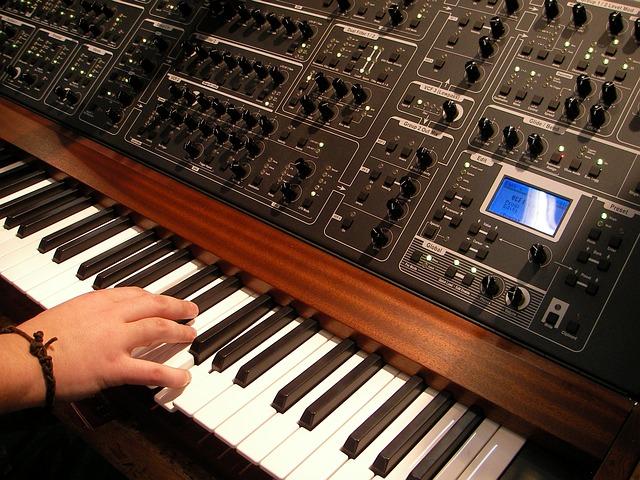Index
Introduction
Memory synthesizers have been a revolutionary development in the field of computing, enabling faster and more efficient processing of data. In this article, we will explore various aspects of memory synthesizers, including their benefits, applications, and future prospects.
Topic 1: Evolution of Memory Synthesizers
Memory synthesizers have come a long way since their inception, evolving from basic storage units to advanced systems with high capacity and speed. They have played a crucial role in enhancing the performance of computers and electronic devices.
Innovations in memory synthesizers have led to increased efficiency and reduced latency, making them essential components in modern computing architectures.

(Image: Pixabay/@Kyrnos)
The continuous development of memory synthesizers has paved the way for new applications and technologies, driving further advancements in the industry.
Topic 2: Types of Memory Synthesizers
There are several types of memory synthesizers available in the market, each designed for specific purposes and requirements. Some common types include volatile and non-volatile memory, cache memory, and virtual memory.

(Image: Pixabay/@kpr2)
Volatile memory, such as RAM, provides fast access to data but loses its contents when power is turned off. On the other hand, non-volatile memory, like SSDs, retains data even without power, making it ideal for long-term storage.
Cache memory is used to store frequently accessed data for quick retrieval, while virtual memory expands the available memory capacity by utilizing disk space as an extension of RAM.
Topic 3: Advantages of Memory Synthesizers
Memory synthesizers offer numerous benefits, including improved system performance, enhanced multitasking capabilities, and seamless data handling. By optimizing memory usage, they enable faster processing speeds and efficient resource management.

(Image: Pixabay/@Tumisu)
Furthermore, memory synthesizers contribute to energy efficiency by reducing power consumption and heat generation, extending the lifespan of devices and lowering operational costs.
Their ability to enhance overall system reliability and stability makes memory synthesizers indispensable in modern computing environments.
Topic 4: Applications of Memory Synthesizers
The versatility of memory synthesizers enables their integration into a wide range of applications across various industries. From consumer electronics to enterprise servers, memory synthesizers play a vital role in ensuring optimal performance and data integrity.

(Image: Pixabay/@geralt)
In automotive systems, medical devices, and aerospace technology, memory synthesizers facilitate real-time data processing, secure storage, and rapid decision-making. Their reliability and speed make them indispensable in critical applications where precision and efficiency are paramount.
Topic 5: Future Trends in Memory Synthesizers
As technology continues to evolve, memory synthesizers are expected to undergo further advancements to meet the growing demands of emerging applications. Innovations in materials, design, and architecture will lead to higher capacities, faster speeds, and increased reliability.

(Image: Pixabay/@margarita_kochneva)
Novel technologies such as MRAM (Magnetoresistive Random Access Memory) and 3D-stacked memory are poised to revolutionize the memory industry, offering superior performance and efficiency compared to traditional memory solutions.
Conclusion
Memory synthesizers have transformed the way data is stored, accessed, and processed in modern computing systems. Their impact on performance, efficiency, and reliability is undeniable, making them essential components in the digital age.
FAQs
How do memory synthesizers differ from traditional memory modules?
Memory synthesizers integrate advanced technologies and optimizations to enhance memory performance and efficiency beyond what traditional memory modules can offer.
What are the key factors to consider when choosing a memory synthesizer for a specific application?
When selecting a memory synthesizer, factors such as capacity, speed, latency, power consumption, and compatibility with existing systems should be carefully evaluated to meet the requirements of the application.

